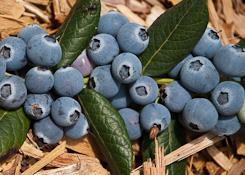
As Australia gets started with its latest blueberry season, the country is looking at a year without access to Japan for mainland fruit, its largest export market.
Japan’s Ministry of Agriculture, Forestry and Fisheries (MAFF) abruptly suspended access for blueberries from Australia earlier this year, along with Argentina and Morocco, Fruitnet.com has learned.
The suspension came over fruit fly concerns, despite no detections having been made by Japanese quarantine officials, according to Peter McPherson, CEO of Australia’s largest berry grower and exporter, Berry Exchange.
“For the last 13 years we’ve had access to Japan, but there have been no detections of Queensland fruit fly,” he told Fruitnet.com. “It’s a bit baffling why they’ve chosen now to `suspend` it.”
He said the ban came prior to the season, but the issue was not likely to be resolved before the end of it.
“Biosecurity Australia is currently in discussions with MAFF to put in place market access through either cold disinfestation or fumigation, but obviously this takes some time,” Mr McPherson detailed.
“Long term we’re pretty certain we’ll get a process at some stage, but short term our customers in Japan are angry that we’ve had the door slammed in our face. They have been quite favourable of the premiums Australian blueberries have been able to obtain for them in Japan.”
Berry Exchange, which is responsible for the majority of Australia’s blueberry exports, is planning its seasonal activities on the assumption it will send no fruit to Japan this year. But while Japan is by far Australia’s largest single blueberry export market, the country should manage to find homes for fruit that needs to be diverted.
Berry Exchange is planning to increase its business in the UK, South East Asia and Hong Kong to compensate, and will divert roughly half of the previously Japan-destined blueberries to the Australian domestic market, which has been giving higher returns than exports for several years now.
“Consumption in Australia has been running at 30 per cent year-on-year growth for the last three or four years,” says Mr McPherson. “It won’t be a problem to find homes for the Japanese fruit. If that volume balances out the prices here, it will just balance out to the prices we would have got overseas anyway.”
Blueberries from the southern state of Tasmania still have Japanese access courtesy of the island’s fruit fly-free status, but Tasmania’s February-April season crosses over with production from lower-cost competitors such as Chile.






No comments yet